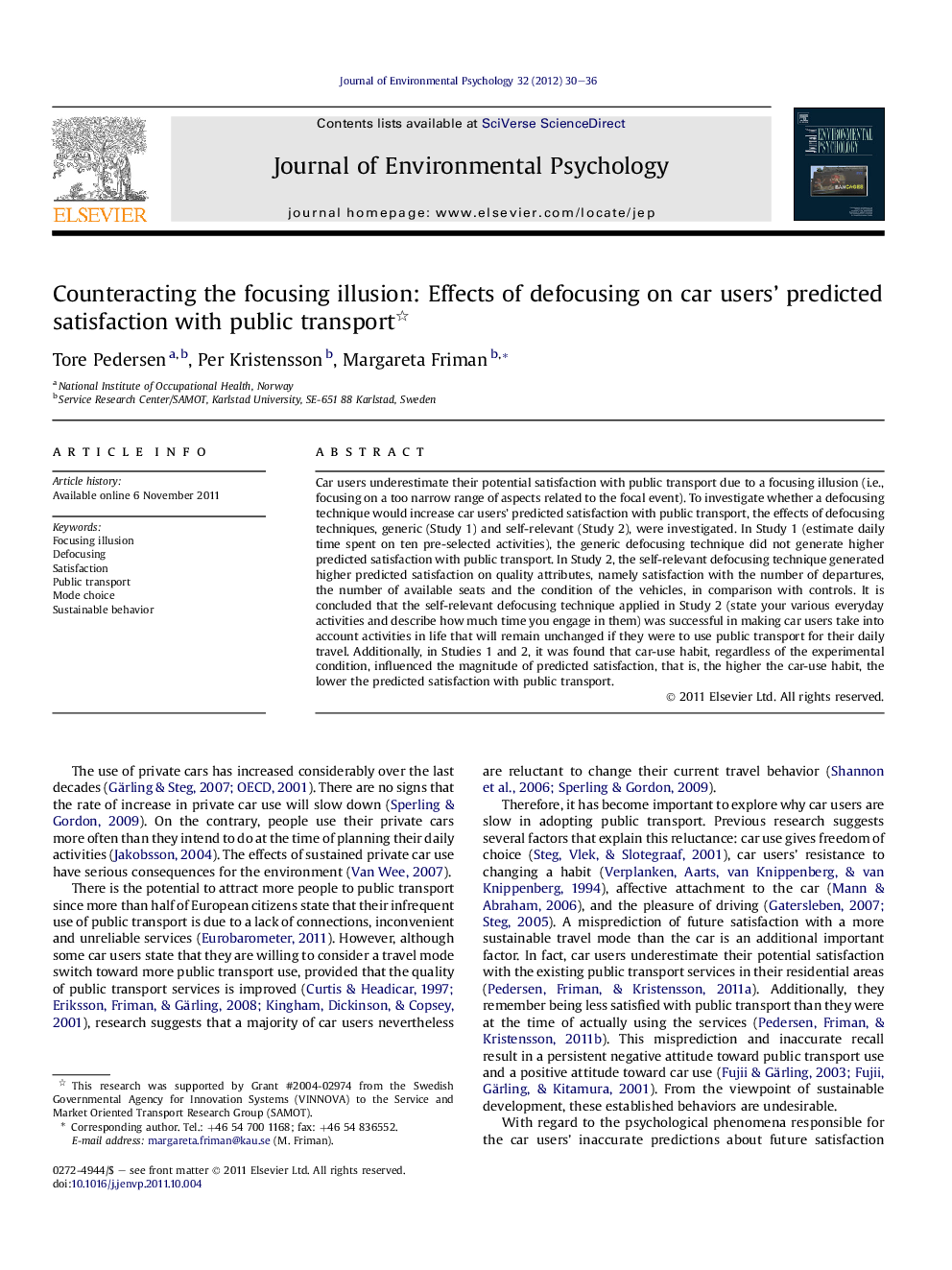| Article ID | Journal | Published Year | Pages | File Type |
|---|---|---|---|---|
| 885677 | Journal of Environmental Psychology | 2012 | 7 Pages |
Car users underestimate their potential satisfaction with public transport due to a focusing illusion (i.e., focusing on a too narrow range of aspects related to the focal event). To investigate whether a defocusing technique would increase car users’ predicted satisfaction with public transport, the effects of defocusing techniques, generic (Study 1) and self-relevant (Study 2), were investigated. In Study 1 (estimate daily time spent on ten pre-selected activities), the generic defocusing technique did not generate higher predicted satisfaction with public transport. In Study 2, the self-relevant defocusing technique generated higher predicted satisfaction on quality attributes, namely satisfaction with the number of departures, the number of available seats and the condition of the vehicles, in comparison with controls. It is concluded that the self-relevant defocusing technique applied in Study 2 (state your various everyday activities and describe how much time you engage in them) was successful in making car users take into account activities in life that will remain unchanged if they were to use public transport for their daily travel. Additionally, in Studies 1 and 2, it was found that car-use habit, regardless of the experimental condition, influenced the magnitude of predicted satisfaction, that is, the higher the car-use habit, the lower the predicted satisfaction with public transport.
► Car users underestimate their future satisfaction with public transport. ► Car users’ predicted satisfaction is negatively biased by a focusing illusion. ► Defocusing counteracts the focusing illusion and increases car users’ predicted satisfaction with public transport.
